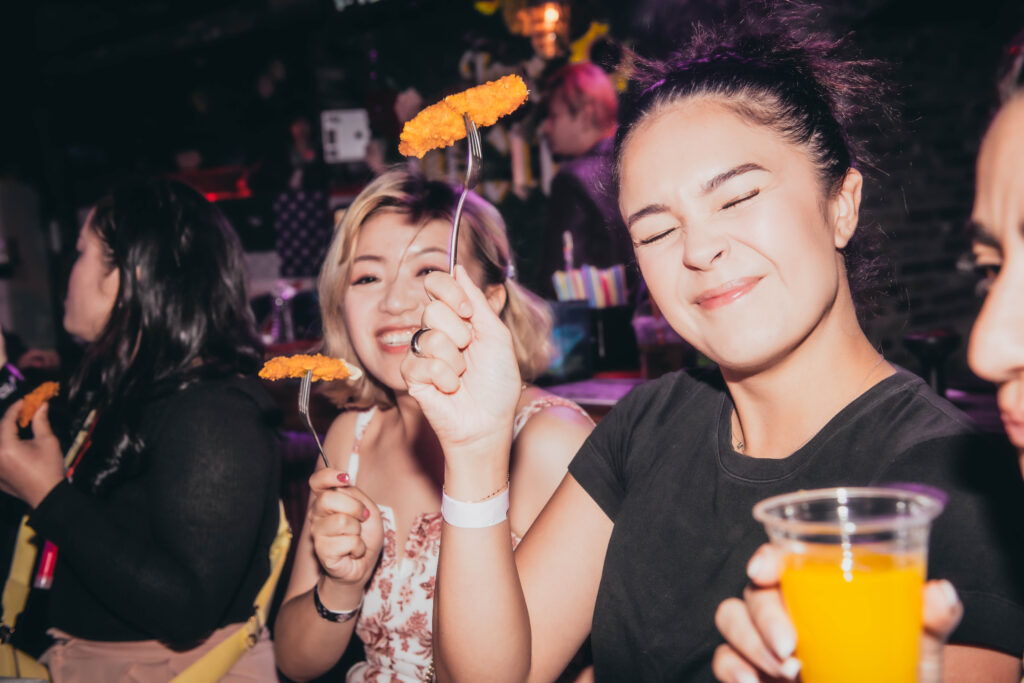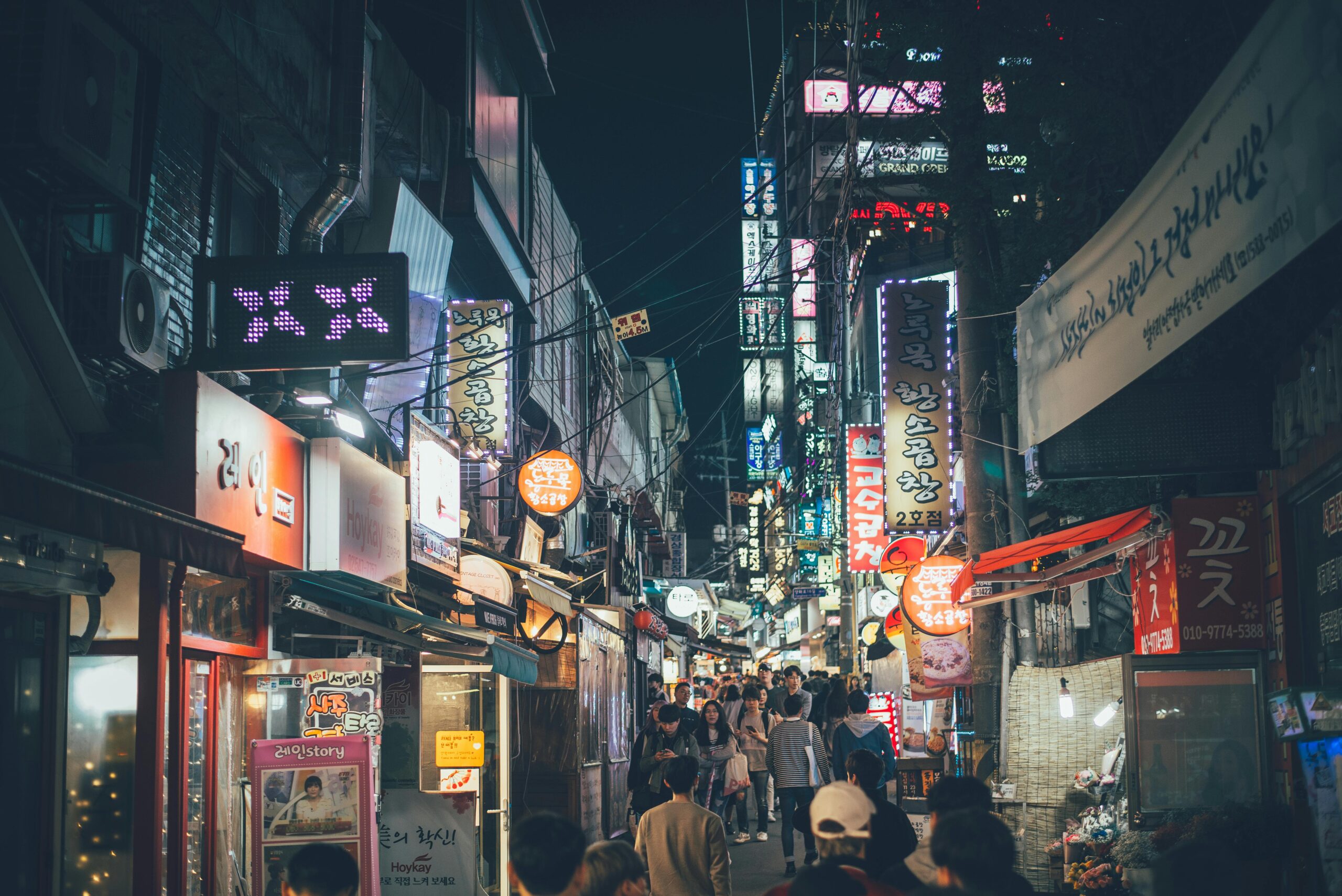How Seoul’s Nightlife Stacks Up Against New York, London, Tokyo, and Berlin

How Seoul’s Nightlife Compares to Other Major Cities
Seoul has quickly earned a reputation as a global nightlife capital, offering an eclectic mix of traditional Korean experiences and cutting-edge entertainment. But how does it stack up against other major cities renowned for their nightlife scenes, such as New York, Berlin, Tokyo, and London? Let’s dive into what sets Seoul apart and where it stands in the global nightlife hierarchy.
Diversity of Experiences
Seoul: From vibrant karaoke rooms (“noraebang”) to swanky rooftop bars in Gangnam, Seoul’s nightlife is as diverse as its culture. The city offers something for everyone—be it dancing the night away in Itaewon clubs, enjoying live indie music in Hongdae, or sipping craft cocktails in Apgujeong.
New York: The “City That Never Sleeps” thrives on variety, much like Seoul. However, NYC nightlife leans heavily on its iconic clubs, jazz bars, and exclusive speakeasies. While the diversity is impressive, it’s often more expensive and less approachable than Seoul’s offerings.
Berlin: Known for its underground techno scene and 24-hour clubs, Berlin’s nightlife is grittier and more niche. While Seoul has its fair share of electronic music venues, Berlin caters almost exclusively to this crowd, making it less diverse than Seoul overall.
Tokyo: Tokyo’s nightlife is a quirky mix of themed bars, karaoke, and hidden gems. Like Seoul, it offers a broad spectrum of experiences, but it leans more heavily on novelty, such as robot shows and tiny bars that seat just a handful of people.
London: London’s nightlife is a blend of historic charm and modern innovation. From traditional pubs and West End theatre experiences to cutting-edge clubs in Shoreditch, London caters to a wide audience. However, it can lack the distinctly cultural elements that define Seoul’s nightlife.
Affordability
Seoul: Seoul’s nightlife is surprisingly affordable, especially compared to cities like New York and Tokyo. Cover charges for clubs are reasonable, drinks are cheaper, and noraebangs provide an inexpensive way to keep the party going.
New York: High cover charges, expensive cocktails, and pricey late-night eats make NYC nightlife one of the costliest in the world.
Berlin: Berlin’s nightlife is famously affordable. Most clubs have reasonable entry fees, and drinks are often cheaper than in Seoul. However, the lack of variety in nightlife options might make the lower costs less appealing to some.
Tokyo: Tokyo falls somewhere in the middle. While drinks and entry fees can be steep, the experience of unique venues and high-quality service often justifies the price.
London: London’s nightlife is notoriously pricey. Drinks, cover charges, and late-night transport can add up quickly, making it less accessible for budget-conscious partygoers compared to Seoul.
Hospitality and Inclusivity
Seoul: One of Seoul’s biggest draws is its hospitality. Hosts, bartenders, and club staff go out of their way to make visitors feel welcome. Seoul’s nightlife is also increasingly inclusive, with venues catering to diverse audiences, including LGBTQ+ friendly spaces in Itaewon.
New York: NYC’s nightlife is known for its cosmopolitan vibe and inclusivity, though it can sometimes feel impersonal due to its fast-paced nature.
Berlin: Berlin’s nightlife is inclusive and welcoming, particularly for the LGBTQ+ community. However, its strict door policies can be intimidating for newcomers.
Tokyo: Tokyo nightlife is hospitable, but cultural and language barriers can sometimes make it less accessible for foreign visitors.
London: London is celebrated for its inclusivity, with a strong LGBTQ+ scene and diverse cultural offerings. However, the sheer size of the city can make finding the right spot overwhelming for newcomers.
Uniqueness and Local Flair
Seoul: Seoul combines modern sophistication with traditional Korean elements. Venues often incorporate hanok architecture, Korean-inspired cocktails, or K-pop themes, making the experience distinctly local.
New York: NYC nightlife thrives on global influences and cutting-edge trends. While iconic, it often lacks the distinct cultural elements that make Seoul so special.
Berlin: Berlin’s nightlife is defined by its countercultural ethos. It’s unique, but its appeal is narrower compared to Seoul’s broader range.
Tokyo: Tokyo excels in providing unique experiences, but its emphasis on novelty can sometimes overshadow deeper cultural immersion.
London: London’s nightlife is steeped in history, with venues like traditional pubs offering a glimpse into the past. However, it often prioritises global trends over distinctly British experiences.
Nightlife Hours
Seoul: Known as the city that truly never sleeps, Seoul’s nightlife extends well into the morning. Many clubs, bars, and noraebangs stay open past dawn, making it a haven for night owls.
New York: While NYC offers a robust nightlife, its late-night options often wind down earlier than Seoul’s.
Berlin: Berlin’s 24-hour club scene rivals Seoul’s, but it’s less diverse in terms of activities outside the techno scene.
Tokyo: Tokyo’s nightlife operates on a similar schedule to Seoul’s, though last train schedules can often dictate when the night ends for many partygoers.
London: London’s nightlife is more constrained by licensing laws, with many venues closing around 2-3 AM. However, select areas like Soho and Camden offer late-night options.
Verdict
Seoul’s nightlife stands out for its diversity, affordability, and welcoming atmosphere. While cities like New York, Berlin, Tokyo, and London excel in specific niches, Seoul’s ability to cater to a wide audience and seamlessly blend tradition with modernity gives it a unique edge. Whether you’re a casual drinker, a karaoke enthusiast, or a hardcore clubber, Seoul offers an unforgettable nightlife experience that few cities can rival.



















